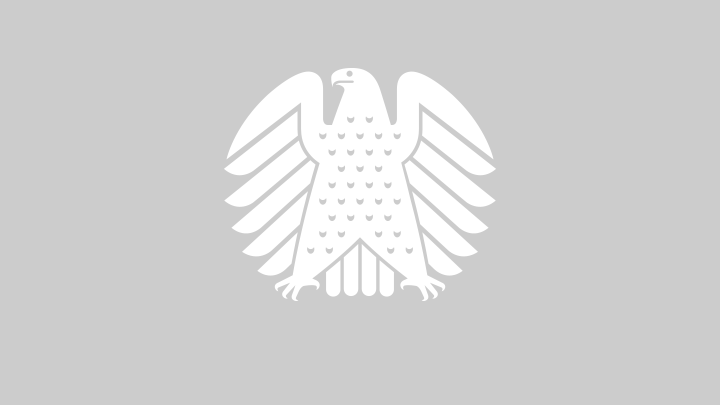The German national anthem

The ‘Song of the Germans’ (© picture alliance / photothek | Ute Grabowsky)
Unity and right and freedom
For the German fatherland!
Let us all pursue this purpose
Fraternally with heart and hand!
Unity and right and freedom
Are the pledge of happiness;
|:Flourish in this blessing’s glory,
Flourish, German fatherland!:|
The ‘Song of the Germans’
August Heinrich Hoffmann von Fallersleben wrote the ‘Song of the Germans’ on 26 August 1841 during a stay on the island of Helgoland, which still belonged to Britain at that time. The text reflected the yearning for freedom and national unity that had already been expressed by the movement for German unity and freedom in numerous songs since the wars of liberation. Hoffmann chose the melody composed by Haydn in 1797 for the anthem ‘God Save Emperor Francis’. The ‘Song of the Germans’ was soon available in print, published by Hoffmann & Campe on 1 September 1841. It was then publicly performed for the first time on 5 October 1841 by the Hamburg Liedertafel, a male voice choir established in 1832.
The ‘Song of the Germans’ was sung by many during the revolutionary years of 1848/49 without ever taking on the character of a national anthem. The song then fell increasingly into obscurity. Only towards the end of the 19th century did it see a renaissance: it was first sung at an official event on 9 August 1890 when Helgoland became part of the German Empire. It subsequently became one of the most frequently performed songs in the German Empire.
The anthem of the Weimar Republic
On 11 August 1922, the Weimar Republic’s Constitution Day, Reich President Friedrich Ebert wrote in the Vossische Zeitung newspaper that he favoured the ‘Song of the Germans’ as the national anthem. This was an indirect use of his power as head of state to determine the symbols of the state. It was hoped that this gesture towards patriotic sentiment would overcome the reservations felt about the new Republic by large parts of the population. He also officially designated the ‘Song of the Germans’ as the national anthem in a directive to the Reichswehr on 17 August 1922.
After 1933, the Nazis abused the first verse in particular to give legitimacy to their expansionist war aims. At official occasions, the first verse was played and sung together with the ‘Horst Wessel Song’, an NSDAP paramilitary song, as the German national anthem.
The national anthem of the Federal Republic of Germany
As the ‘Song of the Germans’ had been discredited by the National Socialists, Federal President Theodor Heuss had a new anthem written and set to music in 1950; however, it received little support from the public. As a result, in the spring of 1952, Heuss and Federal Chancellor Konrad Adenauer agreed on the ‘Song of the Germans’ as the national anthem, the solution favoured by Adenauer. Citing the decision taken by Ebert, Federal President Theodor Heuss claimed the power, as head of state, to determine the melody and words of the national anthem. The decision was taken in an exchange of letters with Chancellor Adenauer, as legal experts considered it necessary for the government to countersign Heuss’s directive. This exchange of letters also stated that only the third verse should be sung at official occasions.
In the spring of 1991, following in the tradition of the exchange of letters between Heuss and Adenauer, Federal President Richard von Weizsäcker declared the third verse of the ‘Song of the Germans’ to be the national anthem of the Federal Republic of Germany in an exchange of letters with Federal Chancellor Helmut Kohl.